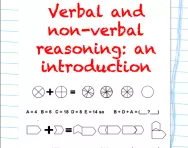The parents' guide to the CEM 11+ test

CEM no longer providing 11+ tests
From September 2023, CEM will no longer provide 11+ tests to schools as they are making the move to digital assessments. We recommend checking individual school websites or contacting school admissions offices for more detail. We will update our 11+ information when we know more.
If your child is preparing for an 11+ test to see whether they’re suitable for a grammar school place, there's a good chance that they’ll be taking a test developed by the Centre for Evaluation and Monitoring (CEM), part of the School of Education at the University of Durham. CEM has been producing school assessments for over 30 years and their entrance tests are used by around one third of grammar schools.
How are the tests developed?
‘At CEM, we can tailor our assessments to each individual school or local authority area, based on their selection criteria, the skills they want to test, and factors such as whether the 11+ is an opt-in or opt-out test in that area,’ explains Dr Sue Stothard, head of assessment development at CEM.
The test development team includes psychologists and teachers from a range of backgrounds. ‘They not only write the materials, but also peer-review them, and then trial them on real children to make sure they’re child-friendly and the right difficulty level,’ Sue explains. Typically, each test is at least 12 months in development.


Prepare Your Child For The 11+ Exam
- Essential 11+ English and maths skills
- Verbal and non-verbal reasoning questions
- Reading comprehension & CLOZE test worksheets
What do they involve?
Because CEM tests are produced to each school or local authority’s exact requirements, the papers differ from area to area. The number of questions and time allowed will vary, as will the format: some papers may be exclusively multiple choice, while others may require written answers. CEM tests may assess children on verbal, non-verbal and numerical skills, and can be either paper- or computer-based.
Will my child need tutoring?
CEM discourages intensive preparation for the 11+. ‘Our assessments are developed to minimise the impact of tutoring and coaching, for two reasons,’ explains Sue. ‘Firstly, this reduces the advantage to children whose parents can afford to access additional services, and also, it assesses genuine academic potential, and so is more effective in selecting the children who are best suited to grammar school education. The papers are not formulaic, but are designed to make children think on their feet, using their skills and also the knowledge they gain in Key Stage 2.’
Where can I find practice materials?
While you can find a range of resources claiming to help children prepare for CEM tests, CEM makes it very clear that it doesn’t produce or endorse any commercially available practice papers, preparation materials, tutoring or coaching schemes. ‘The resources that are available to purchase are not in any way associated with CEM, so we encourage parents to use their judgement and exercise a degree of caution when using these materials, as they may bear little resemblance to the actual test,’ Sue explains. ‘This is deliberate, in an attempt to make the assessment as fair as possible and not give an advantage to children whose parents are able to pay for extra services or resources.’
CEM does, however, produce familiarisation materials for every school or area where its tests are used. Children are provided with these free of charge in the run-up to the test, so they can get an idea of the look and feel of the test and the sort of questions that might be involved.
‘The most important things you can do to help your child prepare are to encourage them to read a wide range of texts and think deeply about what they’re reading, practise maths and problem-solving in everyday situations, get used to working quietly and independently, complete their homework and check their answers,’ Sue adds.
What if I’m disappointed with my child’s result?
‘If your child hasn’t performed as you expected, first, speak to their school,’ Sue advises. ‘Your child’s teacher is one of the best judges of their ability, and will be able to tell you whether they think the result is reasonable. Bear in mind that grammar schools are not the best option for every child.’ CEM itself doesn’t discuss test results with parents, but each school or local authority area will have its own procedure for appealing 11+ test scores, so any enquiries about how to challenge a result should be directed to them.

Give your child a headstart
- FREE articles & expert information
- FREE resources & activities
- FREE homework help







